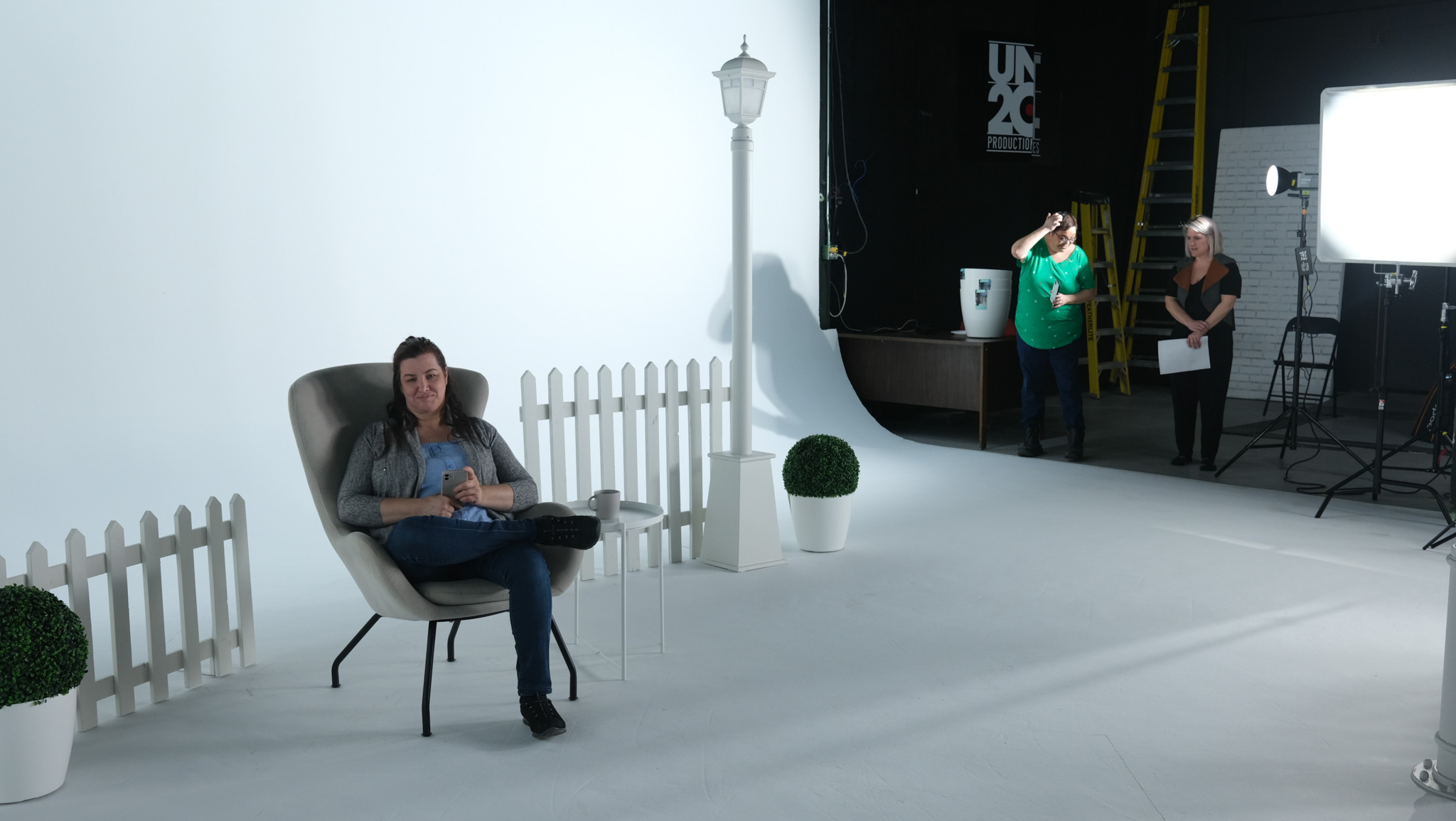
We know most businesses wouldn’t set out to create a barrier. But there are many ways that they can — even unintentionally — put up barriers and prevent folks from fully accessing and engaging with their organizations.
People with disabilities often experience these barriers the most — and it’s a problem that’s so prevalent that Manitoba sought to address it with legal obligations under the Accessibility for Manitobans Act.
To help businesses become more aware of the barriers that exist and how to remove them (as outlined in the Act), we worked with Abilities Manitoba to come up with a clear concept to illustrate the human impact of these barriers, and the ease with which you can get rid of them. The result? Welcome to the metaphorical “Barrier Town.”\
Through our clients’ connections, we were able to stage and set up the metaphorical Barrier Town, featuring people with disabilities sharing the real challenges they face when interacting with businesses.
The goal? To get businesses to start thinking critically about barriers they might have in place and push to start tearing them down. While the videos we created tell the story of how people with disabilities experience Barrier Town, everyone in their lifetime will experience even a temporary disability — and no one can avoid every barrier. We all benefit when spaces are made more accessible to everyone and with full inclusion in mind.
We worked with Abilities Manitoba to connect with a group of people with disabilities to share their lived experience with us before developing a creative concept.
With our client’s blessing, we came up with a video concept that makes the problem so clear it’s almost comical. We’re used to promoting places that people should want to visit, but for our work to promote the Act, we had to invite people into an uncomfortable world – a place that’s hostile to those who live there: Barrier Town.
Grounded in their real-life examples, we staged three scenarios to illustrate some of the common barriers people with disabilities face in our province relative to customer service, employment, and information and communications.
We produced five informational videos as part of the campaign — a long-form and short-form video to promote the Act, and a video dedicated to each of the three sections of focus on its own. Additionally, one-pagers were created for each section of the Act, providing concise information and actionable steps for businesses to ensure compliance. Social media posts were also developed to direct audiences to the resources on Abilities Manitoba's website.
By using monochromatic colours, urban landscaping props and a “Barriers” directional sign, we created a fictional world for the video that represented the experience many have living in a world rife with barriers. We also used a deadpan delivery style for the voiceover, welcoming folks to the uncomfortable and unfair world of Barrier Town.
While experiencing the barriers is anything but comical, the video incorporates humour to make the point that removing barriers should be the only way to operate a business — and we know that most business-minded folks would do almost anything to invite more customers in; hire the right people and make sure everyone can interact with their business online. It’s obvious that not many folks would keep people out of their business on purpose, so the video helps make a blatant point through an engaging, deadpan delivery, to help acquaint people with what types of barriers might exist in their business and how to change them.
A key part of the success of this campaign came from being connected with folks with lived experience early in the process. We could ground our concept development in this experience and ensure it would appropriately capture what it is like to be left out by current business practices and compel people to learn more about how to change this.\
We were told that by having the ability to self-advocate and see themselves onscreen, as well as be compensated for their time in the workshop and behind the camera, we helped to give these individuals a sense of accomplishment, confidence in their involvement, and a pride in their advocacy.
On our part, we were reminded that everyone benefits from spaces when they are made more accessible. Our society stands to gain so much from including more folks with disabilities in all public realms. And it’s always more meaningful to help amplify the voices of those with lived experience to advocate for themselves and a more inclusive future.







